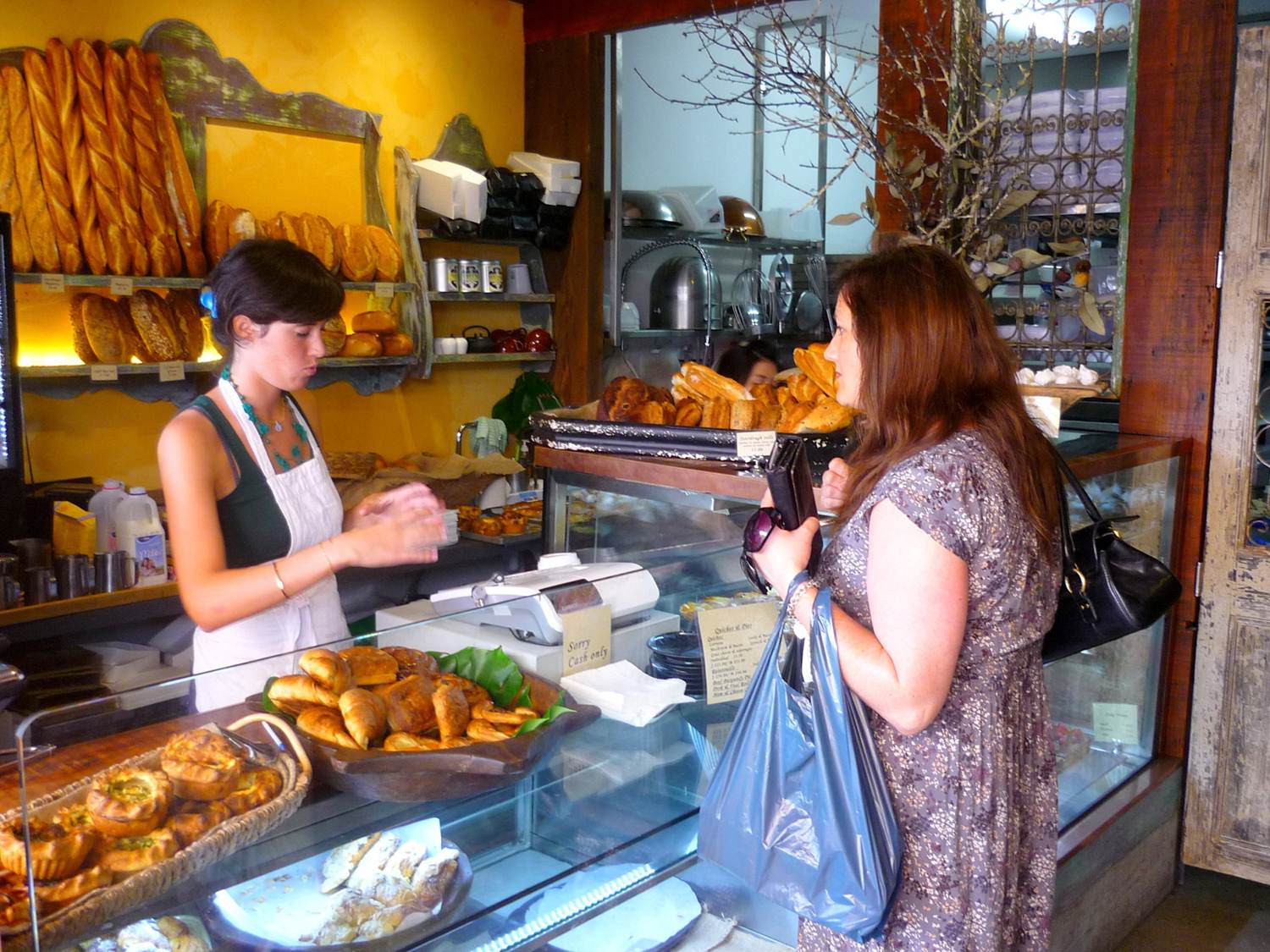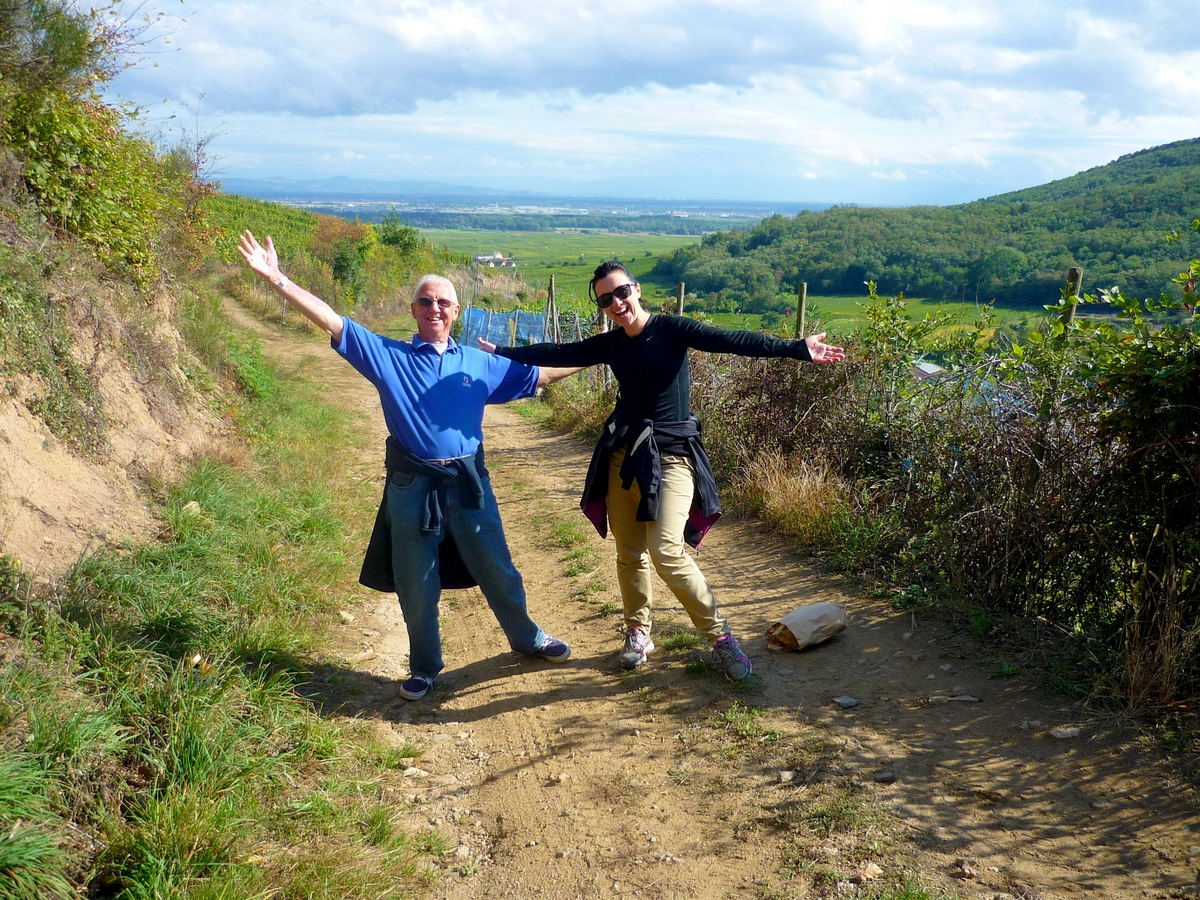Speaking French with confidence may feel like a dream.
Picture yourself strolling through a Parisian market, pointing at a glistening tarte aux pommes, and asking for it—in French.
For many English-speaking travellers, that simple act feels terrifying.
What if the vendor doesn’t understand? What if you make a mistake? What if you freeze?
If this sounds familiar, you’re not alone.
Nearly every non-native visitor to France carries that same hesitation in their suitcase, tucked in between the guidebook and the walking shoes.
But here’s the truth: French people don’t expect you to speak perfectly.
What they do notice—and appreciate—is the effort.
Even a handful of phrases, said with a smile, can transform an awkward encounter into a warm connection.
Speaking French with Confidence: Janine’s Story
Not long ago, Janine, one of my readers from the U.S., wrote to me about her first trip to France.
She had been dreading every café order and ticket purchase, convinced she’d be met with puzzled looks or impatient sighs.
But before her trip, she spent a few months practising French with a tutor online. “It changed everything,” she told me.
On her very first morning in Paris, she walked into a boulangerie and ordered her croissant and coffee in French.
The woman behind the counter smiled and replied naturally.
“That moment,” Janine said, “was the highlight of my trip. I wasn’t invisible. I wasn’t just a tourist. I was part of the conversation.”
Janine didn’t suddenly become fluent. But she gained something more valuable: confidence.
And with it came the courage to keep trying, to keep speaking, to keep connecting.

Why the Fear Is Normal (and How to Quiet It)
Speaking another language in real life—outside the safety of a classroom or an app—feels risky.
Your brain wants control, and suddenly, you don’t have it.
That’s why you hesitate. That’s why you overthink.
But here’s a secret: the French know exactly what you’re going through.
They’ve all had to learn English at some point, often with the same stumbles and nerves.
They’ll respect your effort, even if your accent is thick or your grammar a little wobbly.
So how do you quiet the nerves? Here are a few practical ways to learn French (and use it!):
Start with rituals. Every interaction in France begins with bonjour. Saying this first—before you ask a question, before you order—resets the tone. It’s a tiny word, but it signals respect and makes everything else smoother.
Rehearse out loud. Before stepping into the bakery, quietly practice your line: Je voudrais une baguette, s’il vous plaît. By the time you say it to the baker, it feels less like a test and more like muscle memory.
Lower the stakes. Order a coffee, not a five-course meal. Ask for directions to the train station, not the full history of it. Small wins build big confidence.
Use body language. Smile, gesture, point—it’s all part of communication. Even if words slip away, friendliness speaks volumes.
Pause, don’t panic. If you get stuck mid-sentence, take a breath. You’ll often find the other person will gently help you finish, and that’s okay. That’s how humans connect.
Celebrate every attempt. Did you say something and get a nod in return? That’s success. Write it down, tell yourself the story later, and let it fuel the next attempt.
Making French Part of Your Daily Life
Confidence doesn’t magically appear on arrival at Charles de Gaulle. It grows from practice—little, regular moments of exposure.
Think of it like watering a plant: a few drops every day are more powerful than a flood once a month.

Here are some easy ways to weave French into your routine:
Switch small things. Change your phone or Netflix subtitles to French for a week. It feels strange at first, but your brain adapts quickly.
Make it personal. If you love cooking, follow a French recipe video. If you love fashion, scroll through a French Instagram account. Connecting the language to your passions makes it stick.
Talk to yourself. Narrate what you’re doing: Je fais du café… je sors les clés… It may feel silly, but it builds fluency without pressure.
Find a buddy. Practice with a friend or tutor who cheers you on. Even five minutes a week can keep your motivation alive.
Collect ‘pocket phrases’. Have three or four sentences ready that feel natural to you—like Je regarde, merci in shops or C’était délicieux in a restaurant. These become anchors you can fall back on anytime.
Once you’ve created that gentle habit of exposure, then tools like Lingopie become truly powerful.
How Lingopie Can Boost Your French
So what is Lingopie exactly? Imagine Netflix and a French dictionary rolled into one.
Lingopie gives you access to hundreds of French movies, comedies, documentaries, cartoons, short stories, and even music videos.
I’ve tested it myself—not as a learner, but as a native French speaker curious to see how it works.
And I have to say, I was impressed. The dialogues, the expressions, the everyday turns of phrase: they really do reflect how French is spoken in real life. For travellers and learners, that authenticity is priceless.
Here’s what makes Lingopie different: every video comes with interactive subtitles.
Click a word, learn instantly. Let’s say you’re watching a French crime series and someone says indice. You don’t know the word? Click on it, and up pops the translation—plus it automatically gets saved to your personal flashcards.
Learn in context. Instead of memorising lists of vocabulary, you hear words in real conversations, with real emotions. It’s how you naturally learned your first language.
Choose your pace. You can slow down the playback without distortion, repeat a tricky line, or jump to any part of the transcript. Perfect for catching those fast Parisian accents.
Build confidence gradually. At first, you might keep English subtitles on. Then, as your ear improves, you switch to French subtitles. Eventually, you’ll be surprised to find you don’t need them at all.

The beauty of Lingopie is that it turns language learning into something enjoyable.
You’re not cramming grammar—you’re laughing at French sitcoms, getting hooked on a mystery, or daydreaming with a travel documentary.
And because you care about the story, the vocabulary sticks naturally.
For travellers nervous about speaking French, this is gold.
By the time you land in France, your ear will already be tuned to the rhythm of the language. Ordering coffee won’t feel like diving into the unknown—it will sound strangely familiar, like lines from a show you’ve already watched.
The Gift of Trying to Speak French with Confidence
In the end, your trip to France isn’t graded. No one’s handing out report cards.
The goal isn’t perfection—it’s connection.
When you try—even with broken French—you’re giving two gifts at once:
A gift to yourself. You prove that fear doesn’t control you. You step into the story you’ve always wanted to live. And that memory of courage stays long after the trip ends.
A gift to the other person. You honour their language, their culture, and their humanity. That effort, however small, is noticed and appreciated.
Janine didn’t master the subjunctive overnight. She simply chose to try.
And that choice opened doors, conversations, and smiles that no phrasebook alone could give her.
So next time you’re in Paris or rural France, give yourself permission to be imperfect. To stumble. To laugh at mistakes.
Because when you do, you’ll find that the French are often kinder than your fears imagined—and that the most meaningful travel souvenirs aren’t bought in shops, but built in conversations.




